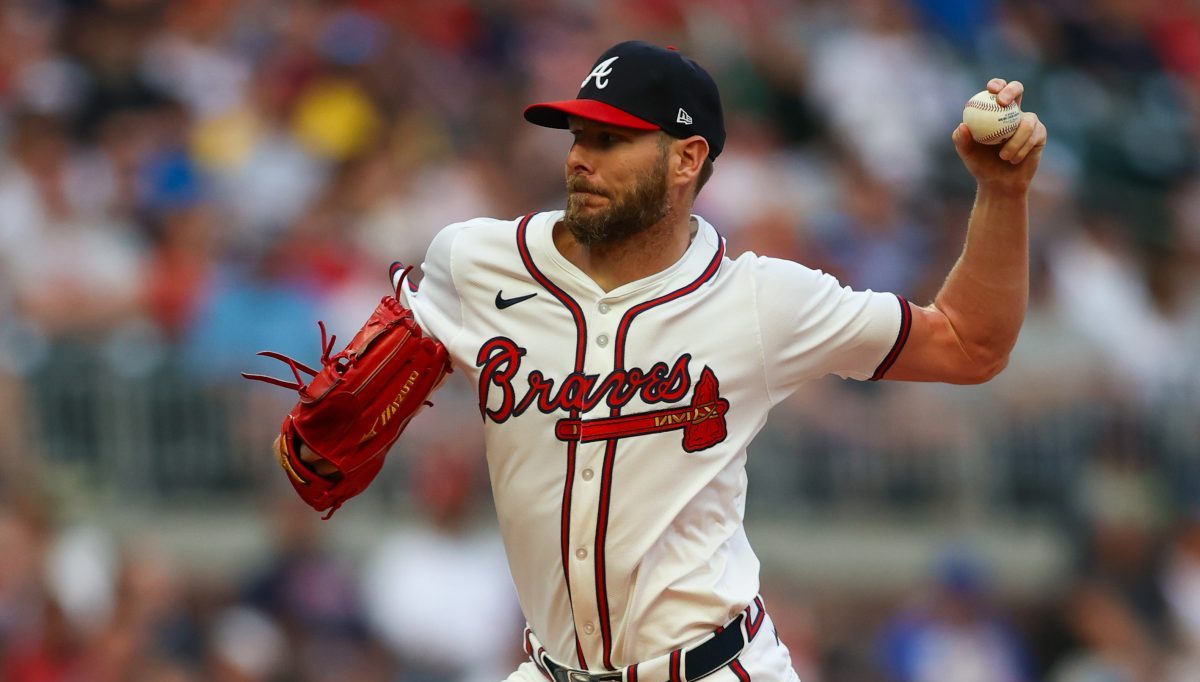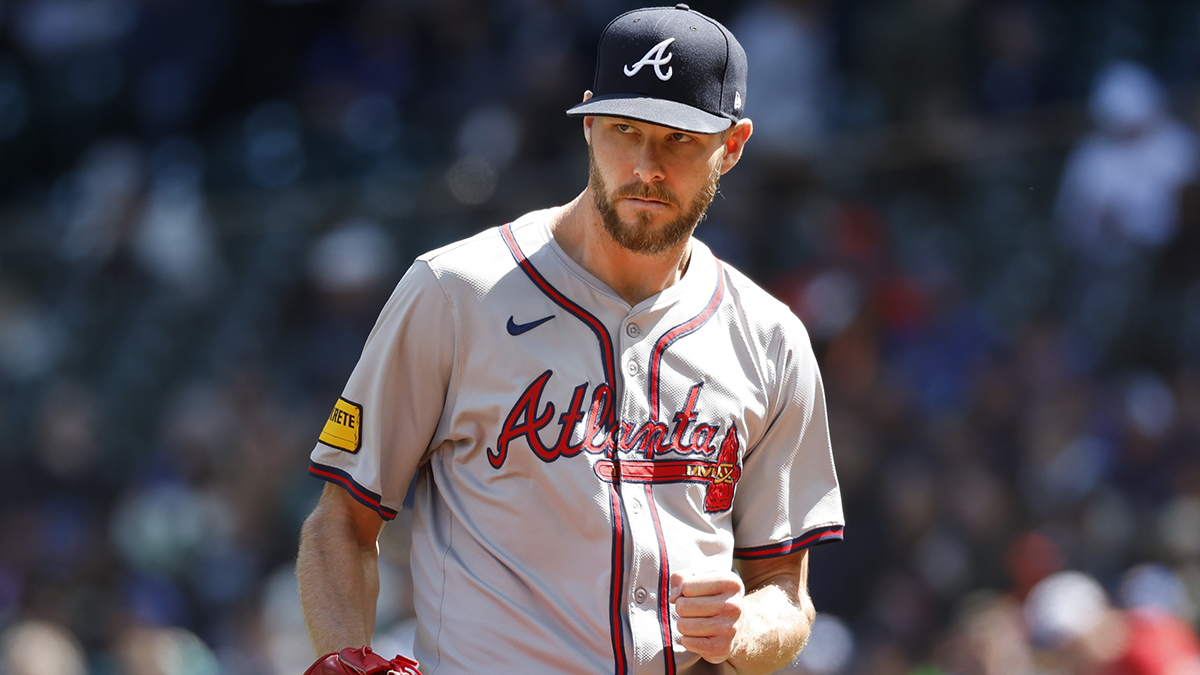
By Sean McAdam
CSNNE.com
As the Red Sox officially introduced Carl Crawford at a press conference Saturday morning at Fenway Park, general manager Theo Epstein noted: "Signings like this don't happen in a vacuum." And indeed, while the news that Crawford had reached agreement on a seven-year, 142 million contract didn't break until late Wednesday night at the annual Winter Meetings in Orlando, it hardly was a last-minute whim.To the contrary, the deal was months in the making and executed over the last few weeks.Based on interviews with baseball sources familiar with the negotiations, here's a look back at, for now, the biggest contract given out by the current Red Sox ownership group:
The Red Sox' interest in Crawford began long before the 2010 season drew to a close, though it may also have coincided with the team's fall from contention.
The rash of injuries that hit the Red Sox outfield (Jacoby Ellsbury and Mike Cameron), coupled with the belief that Ryan Kalish perhaps needed more development time and the recognition that J.D. Drew's contract would expire after 2011 led the Sox to believe that they needed an impact outfielder.
Crawford's age (29), skill set (defense, speed, and growing extra-base power) made him the the perfect fit.
The team assigned special assistant Allard Baird to scout Crawford intently over the second-half of the season to get a better sense of his game, and also, his character and personality. The more Baird watched, the more interested the Sox became.
One benefit of the Sox' failure to make the postseason for the first time since 2006 was that the month of October allowed the Sox to more fully formulate a plan of attack on Crawford.
Boston Red Sox
The Sox had heard that Crawford had an aversion to playing in Boston -- either because of the cold weather in the spring and fall, or the suffocating intensity of the media coverage and fan interest -- and were determined to present the city and the organization in the best possible light.
Theo Epstein and Terry Francona made plans to visit Crawford in his native Houston to make their case. As the two began their pitch, Crawford, at first reserved, began to show for more enthusiasm in becoming a member of the Red Sox.
Until then, the Sox had suspected that Crawford was leaning heavily toward signing with the Los Angeles Angels of Anaheim. Torii Hunter, a friend of Crawford, had publicly campaigned for his team to land Crawford, and for a while it seemed a fait accompli.
But as the Houston meeting continued, held with Crawford's agents -- Greg Genske and Brian Peters -- in attendance, the better the Red Sox felt about their chances.
Sensing that Crawford might be put off by the intensity of playing in Boston, they assured him that other players who shunned the limelight and preferred a more low-key approach -- citing Drew as an example -- could still thrive in Boston.
The Sox assured Crawford that, while they were simultaneously working on a trade for another player (Adrian Gonzalez), he was their top free-agent target of the offseason. They warned him in advance that they would soon be meeting with Jayson Werth, but assured him that Werth was more of a backup plan, partly intended to offer misdirection to some other teams.
No offer was made to Crawford in Houston. In fact, the two sides barely got into parameters. All along, however, the Sox had a general understanding of what it would take to get Crawford, and knew, too, when Grenske and Peters later set their asking price at 10 years, 200 million that no team -- the Red Sox included -- would go that high.
When Werth agreed to a landmark seven year, 126 million contract with the Washington Nationals Sunday, the Sox had yet to make a formal offer on Crawford, occupied as they were on finalizing the Gonzalez trade and, later, on contract extension talks for their newly-acquired first baseman.
The Sox braced for Crawford's representatives to bolster their asking price in the aftermath of Werth's deal. If Werth, two years older and not nearly as athletic as Crawford, could command seven years at 18 million per season, surely Crawford's demands would escalate, too. Instead, Genske and Peters stuck to their request for 10 years, 200 million.
Privately, the agents' dream contract notwithstanding, the Red Sox figured that Werth's deal would ultimately send Crawford's asking price to somewhere between 140-150 million.
Not until Monday, the first day of the winter meetings, did the Red Sox finally make an actual proposal. At seven years for 119 million -- an average of 17 million per -- it was purposely low -- lower even than the deal Werth had gotten 24 hours earlier -- giving the Red Sox some subsequent wiggle room.
At the time, the Sox were hopeful that they could close out a deal at 19 million per season over seven years for a total of 133 million. As it turned out, Crawford would cost them an additional outlay of almost 10 million.
Following some back and forth Tuesday and early Wednesday, Genske called Epstein Wednesday and notified them that the Angels had set an 11 p.m. deadline for negotiations and that it was time for teams to finalize their last, best offer.
Both the Red Sox and Angels were told that Crawford would need 142 million over seven years.
At around 9 p.m. Wednesday evening, Epstein phoned principal owner John Henry and chairman Tom Werner in Liverpool, England and told them of Crawford's asking price.
(Previously, Epstein had had his staff prepare a detailed statistical presentation that explained to the owners why Crawford, far from a typical corner outfielder in that he had never before hit 20 homers or knocked in as more than 90 RBI, was nonetheless worth this kind of investment).
When Werner and Henry signaled their approval from overseas, the Red Sox were armed with an offer that Crawford would find acceptable.
At the same time as the Red Sox were getting ownership approval to hand out the biggest deal since Henry and Co. took control of the club in February 2002, Angels general manager Tony Reagins was getting similar approval from his owner, Arte Moreno.
The Angels, like the Red Sox, had come in with something of a lowball offer initially -- six years at 108 million. Moreno approved an additional guaranteed year and slightly more than 2 million per season. The Angels, then, were ready to meet Crawford's seven-year, 142 asking price.
While the respective teams got ownership approval, Genske and Peters approached Crawford. If both teams come back with what we've requested, they asked, which team will you choose? To the surprise of some, Crawford answered: Boston.
In a final phone call, concluding at 10:50, ten minutes before Genske and Peters were set to meet with the Angels, the Red Sox were told that Crawford had agreed to their terms and an agreement was in place.
In the Red Sox hotel suite at the World Disney World Dolphin Resort, the baseball operations staff and manager Terry Francona were assembled in the living room. From behind closed doors in his bedroom, Epstein could be heard exclaiming: "Awesome!"
When he emerged from the room, he told his staff the good news.
Minutes later, Crawford's agents went to deliver the bad news to Reagins, who was irate. When Reagins reminded the agents, "You told me 142 million would get it done!" the agents responded: "We said that's what it would take; we didn't say we'd guarantee a deal."
As Reagins fumed, the Red Sox celebrated. Never had giving out the biggest contract in the current ownership's history seemed like such a victory.
Sean McAdam can be reached at smcadam@comcastsportsnet.com. Follow Sean on Twitter at http:twitter.comsean_mcadam


